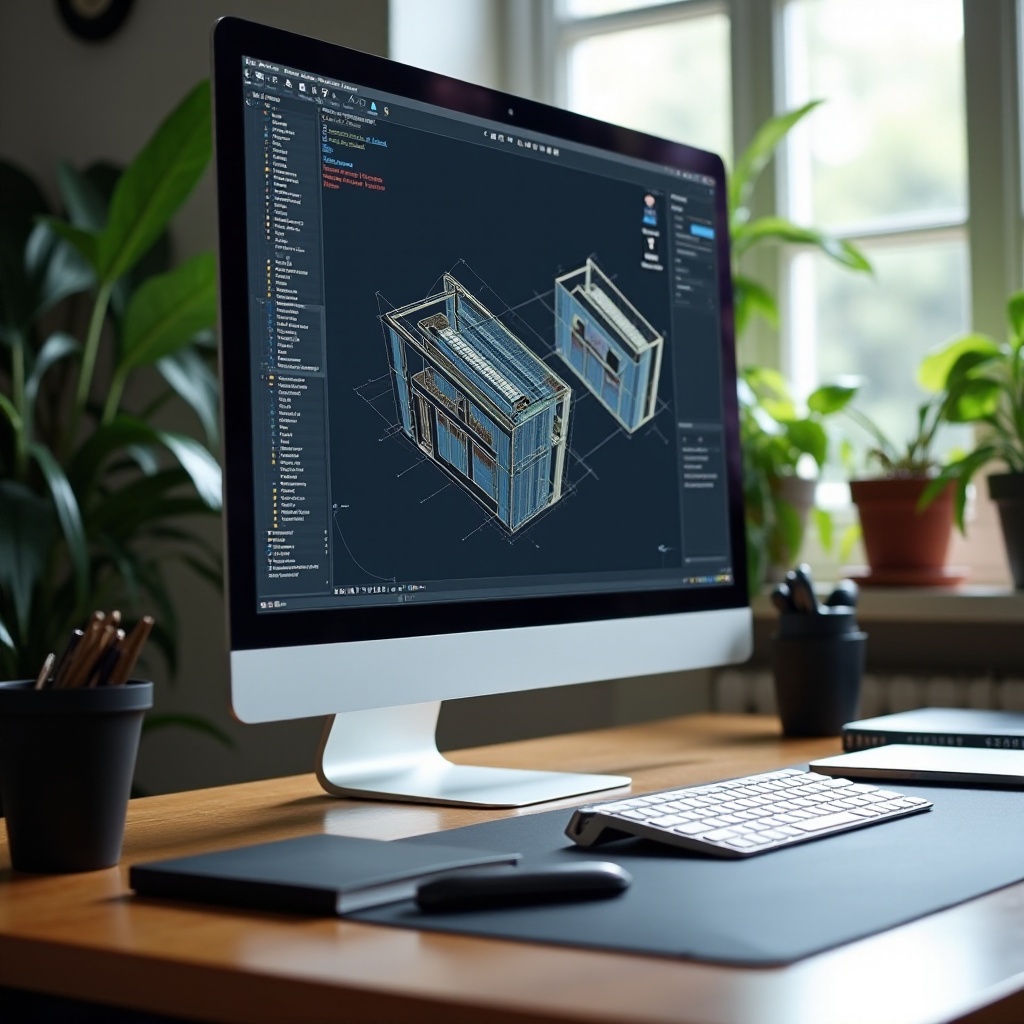Introduction
Choosing the right desktop computer is crucial for engineering students who often run resource-intensive software and applications. A powerful, reliable desktop ensures seamless performance, enabling students to work efficiently on complex projects. This blog explores key considerations for selecting a desktop, highlights top high-performance options, examines budget-friendly alternatives, and provides tips for making a smart purchase.

Key Considerations for Engineering Students
Selecting a desktop computer involves assessing specific needs and requirements. Engineering students must prioritize several key factors to ensure optimal performance and longevity.
- Processing Power: Engineering applications like CAD, MATLAB, and SolidWorks require robust CPUs. A multi-core processor, such as Intel’s i7 or i9, or AMD’s Ryzen 7 or 9, offers the necessary speed and efficiency.
- RAM and Storage: Adequate RAM is essential for multitasking and running large applications. At least 16GB of RAM and solid-state drives (SSD) for fast boot times and data access are recommended.
- Graphics Capabilities: A dedicated graphics card (GPU) is important for rendering and simulations. NVIDIA and AMD offer a range of GPUs, but an NVIDIA GeForce GTX or RTX ensures smooth performance.
- Screen Quality and Resolution: A high-resolution monitor helps with detailed work. A 4K monitor with IPS technology provides clear images and wide viewing angles.

Top High-Performance Desktop Computers for Engineering Students
High-performance desktops cater to demanding engineering applications, offering speed, storage, and superior graphical capabilities.
Dell XPS 8950
The Dell XPS 8950 combines powerful specs with a sleek design, making it an ideal choice for engineering students. It features up to an Intel Core i9 processor, 32GB of RAM, and an NVIDIA RTX 3060 GPU. The ample storage options, including SSD and HDD, ensure fast access and large storage capacity for project files.
HP Omen 40L
The HP Omen 40L is a gaming desktop with specs that cater perfectly to engineering tasks. It boasts an AMD Ryzen 9 processor, up to 64GB of RAM, and an NVIDIA RTX 3080 GPU. This combination supports heavy computational tasks, simulations, and design software. Its customizable lighting and cooling system are an added bonus.
Apple iMac 27-inch (M2, 2024)
Apple’s iMac 27-inch, equipped with the new M2 chip, offers a powerhouse of performance in a compact form. With up to 128GB of RAM and a Retina 5K display, it caters to detailed engineering work with ease. The combination of macOS and powerful hardware makes it a smooth and reliable machine for various engineering applications.
Connecting our introduction to budget-friendly options is vital. Not all students can afford high-end machines, yet they still need reliable devices to get their work done efficiently.
Budget-Friendly Options
For students mindful of their budget, there are desktop computers that offer good performance without breaking the bank. They might lack the extreme power of high-end machines, but they can handle typical engineering tasks effectively.
Acer Aspire TC-900
The Acer Aspire TC-900 is an excellent budget-friendly option. It features an Intel Core i5 processor, 12GB of RAM, and a 512GB SSD. The integrated graphics might not handle the latest games at high settings, but for most engineering software, this setup is more than adequate.
Lenovo IdeaCentre 5
Lenovo IdeaCentre 5 strikes a balance between cost and performance. With an AMD Ryzen 5 processor, 16GB of RAM, and a 256GB SSD paired with a 1TB HDD, it offers ample storage and speed for multitasking. It’s a great option for students who need reliable performance on a budget.
ASUS VivoPC
The ASUS VivoPC is a compact and affordable desktop computer. It comes with an Intel Core i3 processor, 8GB of RAM, and a 1TB HDD. While it’s not the most powerful machine, its reliable performance and affordability make it suitable for light engineering tasks and general use.
Tips for Making a Smart Purchase
When purchasing a desktop computer for engineering studies, consider the following tips:
- Evaluate Usage Needs: Determine the software and applications you frequently use. Ensure the computer you choose meets or exceeds these requirements.
- Check Upgradeability: Consider desktops that allow future upgrades of RAM, storage, or graphics cards. This extends the life and relevance of your machine.
- Warranty and Support: Opt for models with good warranty periods and customer support. It can save time and money if issues arise.
- Shop Around: Compare prices across various retailers. Look for student discounts or deals to get the best value.

Conclusion
Selecting the best desktop computer for engineering students involves balancing performance, budget, and future needs. High-performance models like the Dell XPS 8950, HP Omen 40L, and Apple iMac offer outstanding benefits, while budget options like Acer Aspire TC-900, Lenovo IdeaCentre 5, and ASUS VivoPC provide reliable performance. Keep key considerations and tips in mind to make an informed choice that supports your academic and project needs.
Frequently Asked Questions
What specifications should I prioritize in a desktop computer for engineering studies?
When selecting a desktop computer for engineering, prioritize a powerful processor (Intel i7/i9 or AMD Ryzen 7/9), at least 16GB of RAM, a dedicated GPU (NVIDIA GTX/RTX), and ample SSD storage for fast data access.
Are there student discounts available for these desktop computers?
Yes, many manufacturers and retailers offer student discounts. Check with the specific brands or authorized sellers for student discount programs or special promotions.
Is it worth upgrading my existing desktop or should I buy a new one?
If your current desktop can support necessary upgrades (CPU, RAM, GPU), it may be cost-effective to upgrade. However, if the base system is outdated, investing in a new, high-performance desktop could be more beneficial in the long run.
